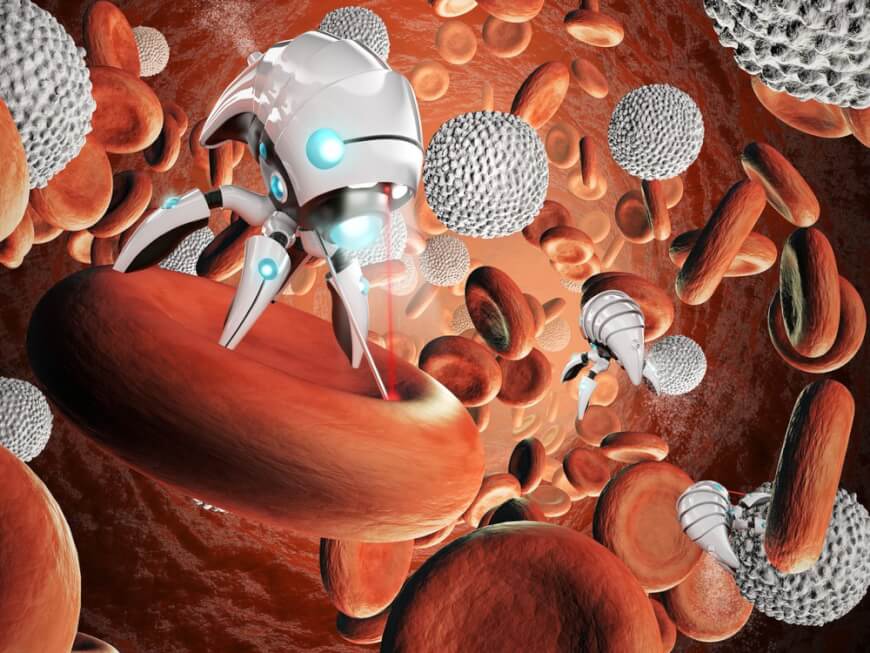Nanotechnology A Tiny Revolution in Medicine
Nanotechnology, the manipulation of matter on an atomic and molecular scale, is revolutionizing the field of medicine. By working at the nanoscale, scientists are developing innovative solutions to some of the most pressing health challenges.
Applications of Nanotechnology in Medicine
- Drug Delivery Systems:
- Targeted Drug Delivery: Nanomaterials can be designed to carry drugs directly to diseased cells, minimizing side effects and increasing therapeutic efficacy.
- Controlled Release: Nanoparticles can release drugs at a controlled rate, optimizing treatment and reducing dosage frequency.
- Diagnostic Tools:
- Biosensors: Nanosensors can detect specific biomarkers, such as cancer cells or infectious agents, at early stages.
- Imaging Agents: Nanoparticles can enhance imaging techniques like MRI and CT scans, providing more detailed images of tissues and organs.
- Tissue Engineering:
- Scaffolding: Nanomaterials can be used to create scaffolds that mimic the extracellular matrix, providing a framework for cell growth and tissue regeneration.
- Cell Delivery: Nanoparticles can deliver cells to injured tissues, promoting healing and repair.
- Vaccines:
- Enhanced Immunity: Nanomaterials can be used to develop more effective vaccines by improving antigen delivery and stimulating a stronger immune response.
- Wound Healing:
- Antimicrobial Coatings: Nanomaterials can be applied to wound dressings to prevent infection and promote healing.
- Growth Factor Delivery: Nanoparticles can deliver growth factors to accelerate wound healing.
Challenges and Future Directions
While nanotechnology holds immense potential, there are challenges to overcome:
- Toxicity: Ensuring the safety of nanomaterials is crucial, as their small size can lead to unintended side effects.
- Regulatory Hurdles: Developing clear regulatory frameworks for nanotechnology-based products is essential.
- Manufacturing Challenges: Mass production of nanomaterials can be complex and costly.
Despite these challenges, the future of nanotechnology in medicine is promising. As research advances and regulatory frameworks evolve, we can expect to see a wide range of innovative nanotechnology-based products that will improve patient outcomes and revolutionize healthcare.
By harnessing the power of the nanoscale, scientists are working towards a future where diseases can be diagnosed earlier, treated more effectively, and prevented more efficiently.

